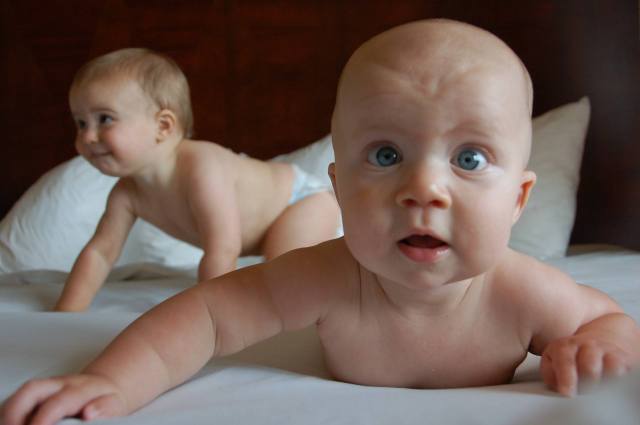
Happiness is a U-shaped curve. Individual experiences differ, of course, but the general trend is to be comparatively happy in our youth, become progressively less so as we mature, only for things to pick up again in our aptly-named golden years.
It’s a pattern that can be summed up in one word: responsibility. As we become adults we acquire all sorts of responsibilities – at work, at home, in the community.
For many – probably most – people, the heaviest responsibility is parenthood. According to the Institute for Family Studies, “a vast body of research indicates that parents, especially American parents, are less happy, on average, than non-parents.”
Hopefully having children brings joy and fulfilment – but it also brings worry, stress and exhaustion: hence the impact on happiness. The US doesn’t do much to make family life any easier – working hours are long, holidays are short and, pretty much uniquely for a rich nation, there is no guaranteed paid maternity leave.
And yet the old patterns appear to be shifting. New research by Chris Herbst and John Ifcher indicates that the happiness gap between parents and non-parents has reversed.
Interviewed by the IFS editors, Herbst expands on these findings:
“…up until the mid-1990s, non-parents were happier than parents. But starting in the mid- to late-1990s, the fortunes of parents and non-parents suddenly flipped, with parents reporting that they were happier. This difference persists, and becomes even larger, throughout the remaining years in our datasets. Thus, the happiness gap in favor of parents is a relatively recent phenomenon.”
So, what’s changed to make parents happier? Not much as it turns out, because, compared to earlier generations, they’re not:
“…over past few decades, the happiness of parents has not changed much. That is, parents today are about as happy as they were several decades ago. Conversely, non-parents have witnessed a sizeable reduction in their happiness; they are less happy today than they were several decades ago. “
Therefore, the question we should be asking is what’s made non-parents unhappier?
Whatever the cause(s), the effects are widespread:
“One of the striking things about the absolute decline in happiness among non-parents is its pervasiveness: the reduction applies to men and women, the working and non-working, whites and non-whites, and the low- and highly-educated.”
According to Herbst, “non-parents perceive their financial situations to be deteriorating relative to parents”. The interview doesn’t go into great detail about which economic factors might be most to blame, but the crisis in the affordability of housing is an obvious candidate. Starting a family of your own is less of an option when you’re still living with your own parents, or in shared accommodation or in a tiny apartment.
Therefore, compared to previous generations, it may be that the category of non-parents contains more people who would choose to be parents in better circumstances. If today’s non-parents include a higher proportion of those who haven’t made a positive choice not to have children, then that would go some way towards explaining the reversal of the happiness gap.
Even when parents were reporting lower levels of happiness than non-parents, it didn’t necessarily mean that those parents would have been happier as non-parents. The things we want, need or feel we ought to do don’t always make us happy – especially when they come with a burden of responsibility – but to be denied the opportunity to make the choice regardless would be worse.
It may also be that non-parenthood carries greater external costs than it used to. Herbst says there has been a “widespread, steady erosion in Americans’ social and civic connectedness”, but that parents are less affected by this trend than non-parents. This makes sense, because while many community institutions have withered away, things like nurseries, playgroups and schools remain a constant – linking parents together as well as looking after their children.
It’s really important that we don’t set the interests of parents and non-parents in opposition to one another. Many of the unnecessary burdens that we’ve placed on parents, especially younger parents, are also experienced by non-parents – indeed they act as barriers to parenthood.
Ten or 20 years down the line, we’re going to realise that, as a society, we’ve screwed up our priorities. We’ve loaded debt on young shoulders to fund the expansion of higher education; we’ve allowed the housing market to benefit the asset-rich; and we’ve concentrated employment opportunity in the least family-friendly locations. Furthermore, we’ve done it all in the name of freedom and opportunity. Yet in the process, we’ve curtailed other, more fundamental, choices for an entire generation.
Any society that turns parenthood into a luxury product is in deep trouble.










Join the discussion
Join like minded readers that support our journalism by becoming a paid subscriber
To join the discussion in the comments, become a paid subscriber.
Join like minded readers that support our journalism, read unlimited articles and enjoy other subscriber-only benefits.
Subscribe